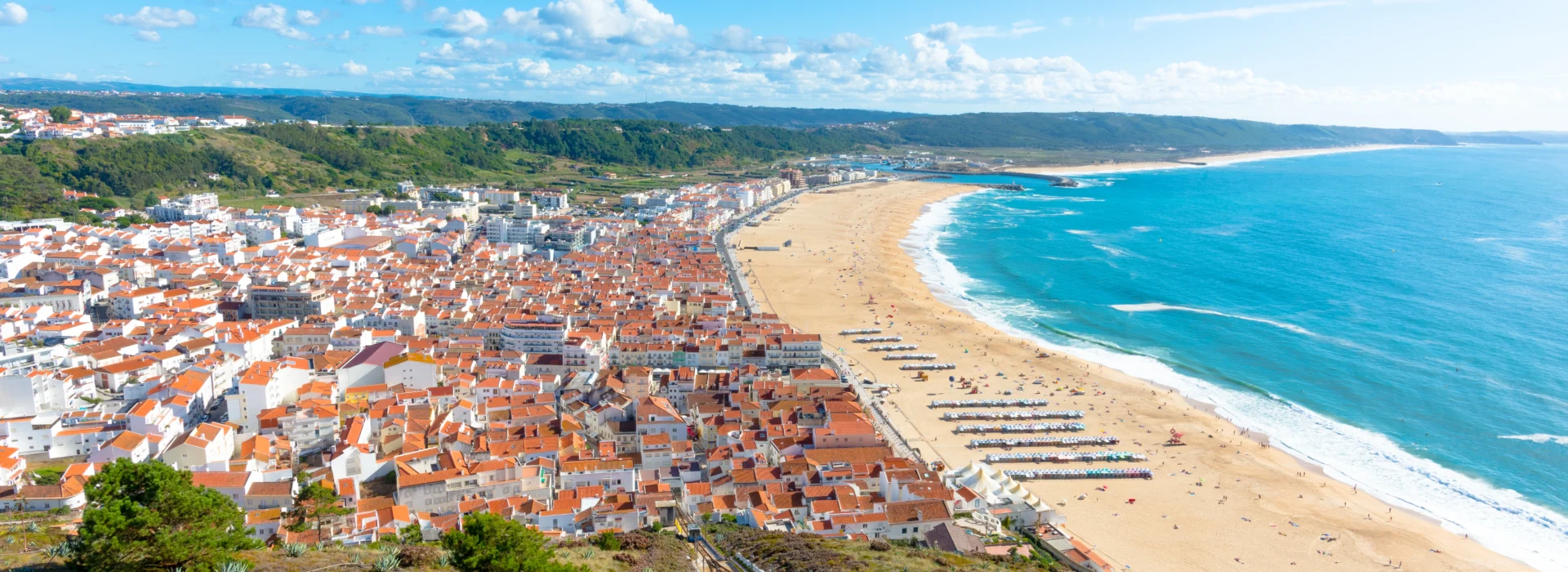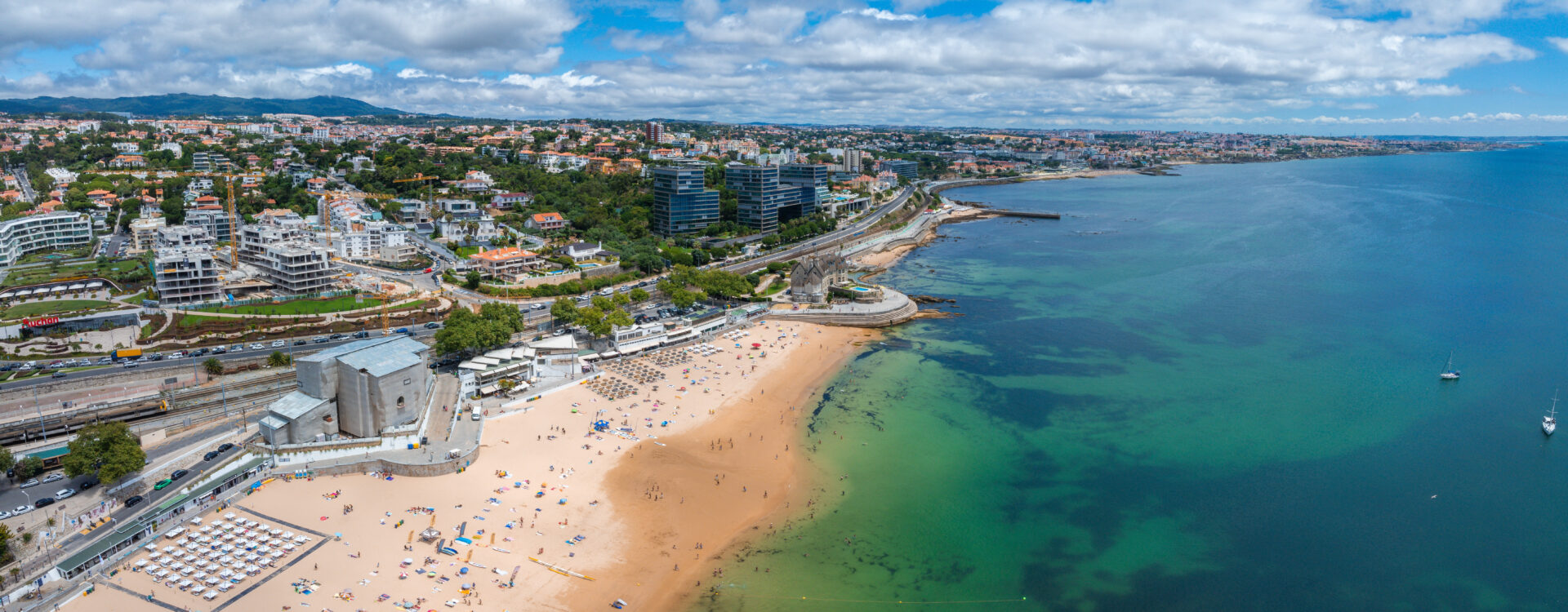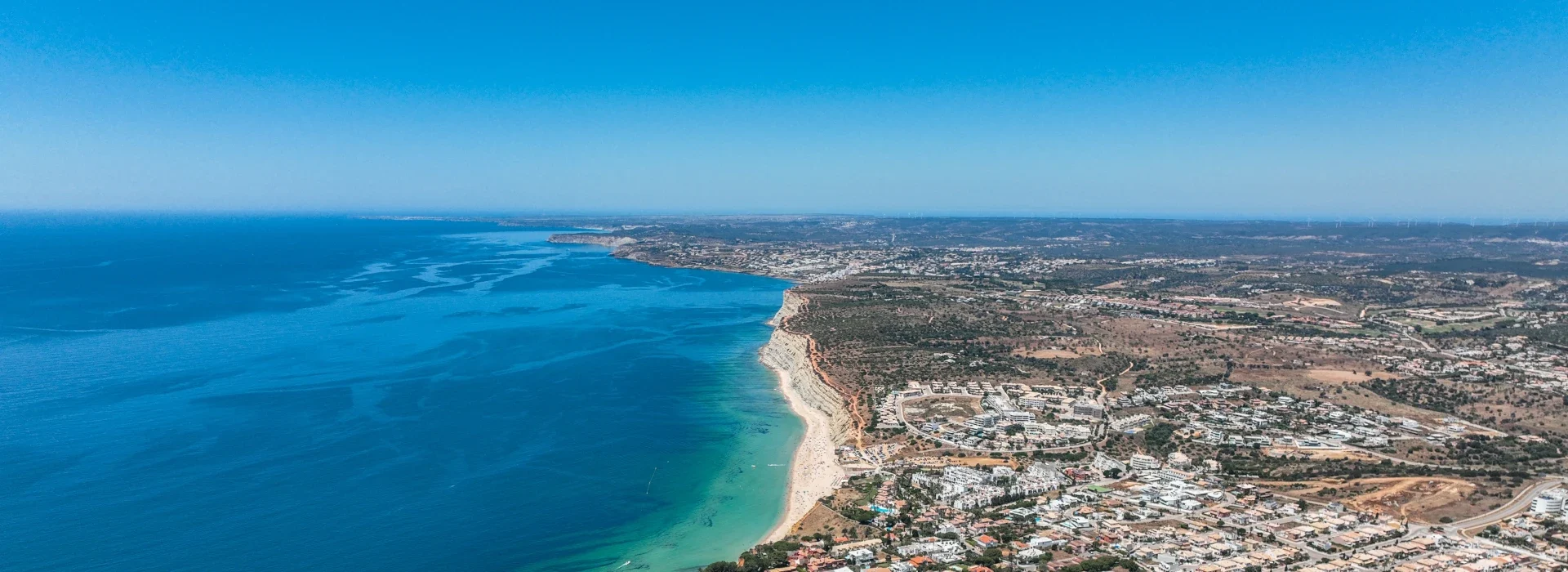Relocating from Brazil to Portugal
Considering a move from Brazil to Portugal? You’re part of a growing trend — thousands of Brazilians are choosing Portugal for its shared language, cultural familiarity, and stable European lifestyle.
This guide brings together everything you need to plan your relocation, from visa and residency options to the cost of living, housing, healthcare, and everyday life.
Whether you’re looking for career opportunities, a safe place to raise a family, or a comfortable retirement in Europe, Portugal offers a welcoming environment and a clear path to integration.
For broader insights on property, education, and legal assistance, explore our complete Moving to Portugal guide.

Talk to our Team
Table of Contents
Why So Many Brazilians Are Moving to Portugal
Shared Language and Cultural Connection
Portugal feels familiar to many Brazilians from the start. The shared language removes most communication barriers and helps newcomers integrate quickly at work, school, and in daily life. Although accents and expressions differ, Portuguese speakers adapt easily, and Brazilian communities in Lisbon, Porto, and the Algarve make the transition smoother. Beyond language, habits like long family meals, social warmth, and a measured approach to time create an immediate sense of belonging.
Economic and Professional Opportunities
Portugal’s economy attracts skilled professionals, entrepreneurs, and service workers. Technology, tourism, healthcare, and hospitality are sectors where Brazilian talent is increasingly in demand. While average salaries may be lower than in São Paulo or Rio de Janeiro, stability, work–life balance, and access to the wider European market often outweigh the difference.
Portugal’s Quality of Life and Safety
Quality of life is a major draw. The country is among Europe’s safer destinations, with low crime rates and reliable public services. Healthcare and education are accessible, and the climate allows for an outdoor lifestyle most of the year. For many Brazilians, Portugal offers a rare balance of familiarity and opportunity.
How to Prepare for Your Move from Brazil to Portugal
Key Documents You’ll Need
Planning ahead with the right paperwork keeps the process predictable. Most applicants will need a valid passport, proof of income, health insurance, criminal record certificates, and—depending on the visa type—evidence of accommodation in Portugal. Birth and marriage certificates should be updated and legalized with an apostille before travelling. Notarized translations into European Portuguese can save time once in Portugal. Keep organized digital and physical copies.
Timeline and Planning Checklist
Ideally, begin preparations three to six months in advance to allow for visa applications, document legalization, and research on housing and schools. Once your visa is approved, book temporary accommodation for the first weeks to explore neighborhoods before signing a long-term lease. Notify banks and service providers in Brazil about your move. Prepare a budget that includes visa fees, travel, deposits, and initial expenses.
Shipping Personal Belongings from Brazil
International shipping can be costly and time-consuming. Many newcomers bring essentials in luggage and purchase larger items after arrival. If shipping furniture or household goods, work with a licensed mover familiar with Portuguese customs. Used personal belongings may be exempt from duties if owned and used for more than six months; always check current regulations before shipping.
Visa and Residency Options for Brazilians
Relocation is often simpler for Portuguese-speaking nationals, but every applicant must follow the official procedures managed by AIMA (Agência para a Integração, Migrações e Asilo). The overview below reflects common paths as of 2026; requirements can vary by case, so confirm details with AIMA or a Portuguese consulate before applying.
Work or Study Residence Visa
- Work visa: for those with a job offer from a Portuguese employer.
- Independent/entrepreneur visa: for self-employed professionals or small business owners.
- Study visa: for students accepted by an accredited Portuguese institution.
These visas typically require proof of income, accommodation, and valid health insurance. After arrival, residents register with AIMA to obtain a residence permit. Processing times vary.
The D7 Visa for Remote Workers and Retirees
The D7 is popular among applicants with stable passive income, pensions, or remote work. It can lead to long-term residency and, under current law, eventual eligibility for permanent residence or citizenship, provided legal residence and tax obligations are maintained.

Talk to our Team
The CPLP Agreement and Simplified Residency
Under the Community of Portuguese Language Countries (CPLP) framework, Brazilians may benefit from streamlined residence procedures in specific cases. This does not replace visa requirements in all scenarios but can reduce paperwork and timelines. Always verify current rules on the AIMA portal.
Note: Proposed changes to Portugal’s nationality law may significantly increase the required period of legal residence for citizenship, but these changes are still pending constitutional review and are not yet in force.
Cost of Living: Brazil vs Portugal
Housing and Rent Prices
Housing is often the largest expense. Lisbon, Porto, and parts of the Algarve have higher rents; smaller cities and inland regions are more affordable.
- One-bedroom in Lisbon: €1,200–€1,800 per month
- One-bedroom in Porto: €900–€1,300
- Mid-sized cities (Coimbra, Braga, Aveiro): €600–€900
- Rural/inland areas: €400–€700
Many start with short-term rentals while searching for a long-term lease. In-person visits are recommended before signing.
Everyday Expenses — Groceries, Dining, Utilities
- Utilities (electricity, water, internet): €100–€150/month
- Groceries and basic supplies: €250–€350/month
- Public transport pass: €40–€50/month
- Casual dining out: €10–€15 per meal
Fresh produce and seafood remain affordable due to local supply chains. Cafés and traditional restaurants offer good value.
Healthcare, Education, and Transport Costs
Portugal’s National Health Service (SNS) offers affordable care once you obtain legal residency and register at your local health centre (Centro de Saúde). Most consultations have a small co-payment, and essential services such as emergency care and maternity are available at low or no cost. Many residents complement public coverage with private insurance for faster access to specialists or English-speaking clinics.
Public education is free for residents; international schools in Lisbon, Cascais, and Porto typically charge €8,000–€15,000 per year. Public transportation is efficient and inexpensive, especially with metropolitan passes.
Best Places in Portugal for Brazilian Residents
Lisbon and the Surrounding Areas
Lisbon attracts newcomers for career opportunities and established communities. Areas like Campo de Ourique, Estrela, and Arroios are popular for walkability and services. Cascais and Oeiras offer coastal living with international schools and quick access to the capital. Housing costs are higher than elsewhere, but public transport and cultural options are strong.
Porto and Northern Portugal
Porto balances tradition and innovation with growing tech and education sectors, often at lower housing costs than Lisbon. Nearby Gaia and Matosinhos provide beach access and modern infrastructure. Community ties in the north are strong and welcoming.
The Algarve
The Algarve appeals to retirees, hospitality professionals, and families seeking a coastal lifestyle. Cities like Lagos, Albufeira, and Tavira combine tourism infrastructure with quieter residential areas. Faro adds university life and an international airport. Property prices are higher in central Algarve, but overall liveability remains attractive.
Smaller Cities with Big Potential
Coimbra, Braga, Aveiro, and Setúbal offer lower living costs and solid public services without losing urban amenities. Coimbra is known for its historic university, Braga for tech and young families, Aveiro for coastal living with modern business parks, and Setúbal for proximity to Lisbon with a local feel.
Working and Doing Business in Portugal
Job Market and In-Demand Professions
Opportunities depend on experience, qualifications, and language skills. Portuguese and English are valuable in most roles; English is essential in many international companies. Sectors with demand in 2026 include technology and IT services, healthcare, tourism and hospitality, education and languages, and multilingual customer support/shared services. Regulated professions require recognition of credentials through Portuguese authorities.
Starting a Business as a Brazilian Entrepreneur
Entrepreneurship is encouraged, with simplified registration and access to the EU market. After obtaining a NIF and meeting basic requirements, you can register a company in person or online. Startup hubs in Lisbon, Porto, and Braga support innovation. Many founders consult a local accountant (contabilista certificado) to ensure compliance.
Work Culture Differences
- Formality, punctuality, and clear hierarchies are common.
- Meetings follow structured agendas; decisions may take longer.
- Work–life balance is valued, with generous holidays and family time.
- Communication is direct but courteous; concise emails are appreciated.
- Networking and personal connections support career growth.
Education and Family Life in Portugal
Schools and Universities for Brazilian Families
Public schools are free for residents and offer full-day schedules. Private and international schools—mainly in Lisbon, Cascais, Porto, and the Algarve—follow Portuguese or international curricula (British, American, IB). Typical international school fees range from €8,000 to €15,000 per year. Major universities include the University of Lisbon, University of Porto, University of Coimbra, and NOVA University Lisbon.
Adapting Children to a New Environment
Language overlap helps children integrate quickly. Extracurricular activities—sports, music, dance—support social connections. Teachers in larger cities are used to welcoming international students. Maintaining ties with both Portuguese and Brazilian communities gives children a sense of belonging.
Brazilian Communities and Support Networks
Established communities exist across Portugal, especially in Lisbon, Porto, and the Algarve. Cultural associations, churches, and informal groups organize events and share practical advice. Over time, most families build friendships beyond the expat circle, blending naturally into local life.
Healthcare System for Brazilians in Portugal
Public and Private Healthcare Options
The National Health Service (SNS) guarantees access to healthcare for legal residents. After registering at a local Centro de Saúde, residents can use family doctors, specialist services, hospitals, and emergency care. Consultations usually involve a small co-payment (taxa moderadora), while essential services such as vaccinations, maternity, and urgent care are offered at low or no cost. Many residents combine SNS access with private insurance to reduce waiting times or broaden specialist choice.
How to Register for the SNS
- Obtain legal residence and proof of address.
- Register at your local Centro de Saúde to receive a Número de Utente.
- Provide residence document, NIF, and address proof; complete a short form.
Assignment to a family doctor can take time in some areas, so early registration is advisable.
Health Insurance and Additional Coverage
Private insurance is widely available through national and international providers and can offer faster specialist appointments, access to private hospitals, and English-speaking clinicians. Some employers include health plans as part of benefits. Combining public and private care often provides a good balance between cost and convenience.
Taxes, Banking, and Money Matters
Opening a Portuguese Bank Account
Opening an account is straightforward once you have a NIF (tax number). Banks typically request a passport or residence permit, proof of address (in Portugal or Brazil during relocation), the NIF, and proof of income. Accounts can be opened in person or, in some cases, remotely. Local accounts simplify rent, utilities, and tax payments.
Tax Residency and Double Taxation
Under Portuguese tax law, individuals are generally considered residents if they spend more than 183 days within any 12-month period in Portugal, or if they maintain a permanent home in the country that indicates an intention to live there. Tax residents are taxed on worldwide income; non-residents are taxed only on Portuguese-source income.
Brazil and Portugal have a double taxation agreement that prevents the same income from being taxed twice. How specific income types (pensions, salaries, investments) are treated depends on individual circumstances. For personalized guidance, consult a professional familiar with both systems.
Transferring Money Between Brazil and Portugal
Common options include bank transfers (SWIFT), international money transfer services, and currency exchange platforms. Compare total fees and exchange rates, especially for large transfers. Brazilian residents must observe local currency control rules when sending funds abroad; in Portugal, incoming transfers are legal when the source of funds is documented. Keeping accounts in both countries can help manage ongoing commitments.

Talk to our Team
Transportation and Driving in Portugal
Public Transportation
Lisbon, Porto, and Coimbra offer metro, bus, and train networks with integrated passes that allow unlimited travel for a fixed monthly cost, typically €40–€50. CP – Comboios de Portugal connects major regions, and intercity buses serve towns without rail. Many residents rely on public transport for commuting; digital apps provide route planning and real-time updates.
Driving in Portugal
Driving is on the right, and seat belts are mandatory for all passengers. Typical speed limits are 50 km/h in urban areas, 90 km/h on rural roads, and 120 km/h on highways. Toll roads are common and can be paid via Via Verde or prepaid systems. Vehicles must pass periodic inspections (IPO) once registered.
Exchanging a Brazilian Driver’s Licence
Thanks to the agreement between Portugal and Brazil, holders of a valid Brazilian licence (CNH) can exchange it for a Portuguese licence without additional driving tests. The process is managed by IMT (Instituto da Mobilidade e dos Transportes). Typical requirements include a valid CNH and passport or residence permit, NIF and proof of residence, a medical certificate, and an IMT application with fee. The exchange is usually completed within 90 days of obtaining residency; confirm current procedures with IMT.
Adapting to Life in Portugal
Portuguese Lifestyle and Local Etiquette
Life moves at a measured rhythm. Punctuality is appreciated, but there is room for conversation and personal connection. Meals are central to social life; dinners often start after 8 p.m. Politeness and discretion matter, from simple greetings to quiet hours in residential buildings. Relationships deepen over time through consistency and respect.
Climate, Food, and Everyday Life
The climate is mild overall, with warmer, drier conditions in the south and cooler, wetter winters in the north. Food is simple and seasonal: fresh fish, olive oil, bread, and fruit markets shape daily routines. Cafés are social spaces where people meet for coffee and conversation. Embracing these rhythms often leads to a healthier, more balanced lifestyle.
Staying Connected to Brazilian Culture
Brazilian restaurants, grocery stores, and cultural events are easy to find in major cities. Television channels and streaming services are widely available. Integration into Portuguese society happens naturally through schools, work, and neighborhood life, allowing families to balance both cultures.
Retiring in Portugal as a Brazilian Citizen
Benefits of Retiring in Portugal
- Safety and social stability.
- Manageable living costs, especially outside the largest cities.
- Comprehensive healthcare through the SNS once registered.
- Mild weather and proximity to the sea.
- Cultural familiarity and community support.
Visa and Financial Requirements
The D7 visa is a common route for those with pension or passive income. Applicants demonstrate regular income at levels set by Portuguese authorities and, after arrival, register with AIMA for a residence permit. Requirements and thresholds can change annually; confirm current details with AIMA or the Portuguese consulate before applying.
Best Places for Retirees
Beyond Lisbon and Porto, many retirees choose the Algarve for sun and established communities, the Silver Coast (Nazaré, Caldas da Rainha, Figueira da Foz) for relaxed coastal living and lower property prices, and central Portugal (Tomar, Coimbra, Leiria) for affordability and a strong sense of community. Visiting different regions before deciding is recommended.
Final Steps and Integration Checklist
Pre-Move Essentials
- Valid passport and visa approval.
- Certified and apostilled documents (birth, marriage, criminal record).
- Proof of income and accommodation.
- Portuguese tax number (NIF).
- Health insurance valid in Portugal.
- Plan for temporary housing on arrival.
Create secure digital copies of all key documents.
Arrival and First Steps in Portugal
- Register your address with the local Junta de Freguesia.
- Schedule your residence permit appointment with AIMA.
- Apply for your Número de Utente at the Centro de Saúde.
- Open a local bank account if needed.
- Set up utilities, mobile service, and transport passes.
- Locate nearby supermarkets, clinics, and public offices.
Tips for a Smooth Integration
- Learn basic European Portuguese expressions.
- Engage with local communities and activities.
- Explore gradually beyond expat circles.
- Be patient with bureaucracy and keep organized records.
Useful Contacts and Resources
Rely on official and trustworthy sources for up-to-date guidance.
- AIMA — migration and residency services — https://aima.gov.pt
- SNS — public healthcare information and registration — https://sns.gov.pt
- Autoridade Tributária — tax information and services — https://www.portaldasfinancas.gov.pt
- IMT — driver’s licence exchange and vehicle registration — https://imt-ip.pt
- INE — statistics and demographics — https://www.ine.pt
- Embassy of Portugal in Brasília — consular information — https://www.gov.pt/pt/embaixada/brasilia
- Diário da República — official legislation — https://dre.pt
- CP — national rail services — https://www.cp.pt
Relocation and Local Support
Moving to a new country involves both practical arrangements and personal adaptation. This platform provides reliable information and connects newcomers with trusted professionals who can help relocate, invest, or settle in Portugal. For individuals and families relocating from Brazil to Portugal, support may include planning, property searches, and legal coordination — helping to make the transition smoother and well-structured.
Each relocation path is different. Those seeking a personalised plan or local guidance can be connected with specialists who provide step-by-step assistance as they adjust to life in Portugal.

Talk to our Team
Frequently Asked Questions
Do Brazilians need a visa to live in Portugal long term?
Yes. While Brazilians can visit Portugal for up to 90 days without a visa for tourism or short stays, living or working in the country requires a residence visa, such as the D7, work, or study visa. Once in Portugal, residents must register with AIMA to obtain a residence permit.
Can Brazilians access Portugal’s public healthcare system (SNS)?
Yes. Legal residents from Brazil can register with the National Health Service (SNS) at their local Centro de Saúde to receive affordable healthcare. Registration requires a residence permit, NIF, and proof of address. Many choose to combine public services with private insurance for flexibility.
Is Portuguese citizenship available to Brazilian residents?
Brazilians can apply for Portuguese citizenship after five years of legal residence. Because of the historic Portugal–Brazil connection, citizens of Brazil benefit from certain simplified naturalization pathways, but requirements such as residence duration, good conduct, and Portuguese language proficiency still apply.
How much money do I need to live comfortably in Portugal as a retiree from Brazil?
Living costs vary by region. A retired couple can live modestly in smaller towns with around €1,800–€2,200 per month, while Lisbon or the Algarve may require €2,500–€3,000. Budget depends on housing, lifestyle, and healthcare choices.
Are Brazilian driving licences valid in Portugal?
Brazilian driver’s licences (CNH) can be used for up to 185 days after arrival. For longer stays, they can be exchanged for a Portuguese licence at IMT without additional driving tests, provided the licence is valid and issued before the residence permit date.
How does the tax system work for Brazilians with income in both countries?
Residents in Portugal are taxed on worldwide income, but the double taxation treaty between Brazil and Portugal prevents being taxed twice on the same earnings. It is advisable to seek professional guidance to ensure compliance in both jurisdictions.
What are common challenges Brazilians face when settling in Portugal?
The main challenges include understanding local bureaucracy, adapting to slower administrative processes, and adjusting to differences in work culture and cost of living. However, the shared language, safety, and social warmth usually help Brazilians integrate successfully.
Are there Brazilian communities in smaller cities too?
Yes. While Lisbon, Porto, and the Algarve have the largest Brazilian populations, smaller cities such as Braga, Coimbra, Leiria, and Aveiro also host active communities. Many newcomers prefer these areas for affordability and a more relaxed lifestyle.
Can Brazilians buy property in Portugal as non-residents?
Yes. There are no restrictions on property ownership for Brazilians. Both residents and non-residents can purchase real estate, though buying property does not automatically grant residency. Proper due diligence and legal support are essential during the process.
This guide was prepared with care to provide clear, factual information based on official Portuguese sources such as AIMA (Agência para a Integração, Migrações e Asilo), AT (Autoridade Tributária e Aduaneira), SNS (Serviço Nacional de Saúde), IMT (Instituto da Mobilidade e dos Transportes), and INE (Instituto Nacional de Estatística). While we aim to keep content current, readers should always confirm details with official institutions or qualified professionals when planning their move.















